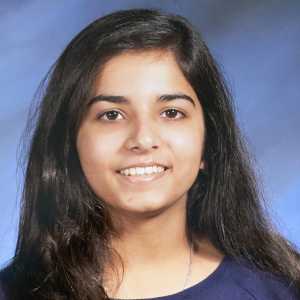Title : The efficacy of music therapy on behavioral and emotional recovery for patients with TBI
Abstract:
Background:
Traumatic Brain Injury (TBI) is an injury to the brain caused by a blow to the head, which is commonly seen in motor vehicle accidents, sports injuries, falls, and assaults. Studies have shown that emotional states such as agitation can result in a longer hospital stay, reduced participation in rehabilitation, poorer cognitive and motor functioning, and an extended period of post-traumatic confusion for these individuals. Although non-pharmacological treatments, such as music therapy, have become more common in the treatment of TBIs, research on their effectiveness in managing emotional and behavioral dysregulations remains limited.
Methods:
The application of music therapy in the treatment of TBI was thoroughly analyzed in recent studies. A comprehensive search of PubMed databases and the Bergen Open Research Archive yielded relevant papers published between 2018 and 2022. "To conduct the literature review, the following search terms were used: “traumatic brain injury” AND “music therapy” AND “cognitive rehabilitation OR emotional regulation OR emotional recovery OR behavioral recovery OR emotions OR mood” were among the search terms utilized. The chosen publications were then examined to find major themes, such as possible advantages and disadvantages of this technology, the ideal patient demographics, and future paths of study.
Results:
One of the systemic review and meta-analysis studies focused on 6 studies suggested that there was a statistically significant improvement in the motor outcomes which consisted of gait velocity, cadence, and stride length. In addition, none of the studies highlighted serious side effects indicating that music therapy has benefits in recovering from TBI.
Another study suggests that music therapy provides several benefits for individuals with severe TBI, including emotional regulation, increased motivation, and improved communication skills. This study highlights the importance of providing individuals with severe TBI with customized and flexible music therapy interventions and collaboration between music therapists and other healthcare professionals.
This randomized controlled crossover trial found that neurological music therapy (NMT) had a significant positive effect on executive and emotional functioning when done immediately after a TBI. Additionally, qualitative data suggests that patients found the NMT to be very useful for emotional regulation.
Conclusion:
The findings support that music therapy has shown significant changes in patients recovering from TBI. Patients have shown improvement in their psychological, emotional, and motor outcomes indicating music therapy to be a favorable therapy for patients that are intolerable to pharmacological treatments. In addition, music therapy could be combined with other treatments and rehabilitation techniques to expedite behavioral and emotional recovery for patients with TBI to help them return to their everyday life.
This study shows promise for music therapy as a potential treatment option for individuals with TBIs. Future research should investigate the objective measures of the neuroplastic, cognitive, and behavioral effects of music therapy on both short-term and long-term recovery. Music therapy may provide a cost-effective and conservative approach for healthcare providers to improve the quality of life of TBI patients, and this paper contributes to the literature on the effects of music exposure on this population.
References
- Carrier SL, Ponsford J, Phyland RK, Hicks AJ, McKay A. Effectiveness of Non-Pharmacological Interventions for Agitation during Post-Traumatic Amnesia following Traumatic Brain Injury: A Systematic Review. Neuropsychol Rev. Jun 10 2022; doi:10.1007/s11065-022-09544-5
- This systematic review aimed to evaluate the effectiveness of non-pharmacological interventions for agitation during post-traumatic amnesia (PTA) following traumatic brain injury (TBI). The results suggest that there is limited evidence for the effectiveness of non-pharmacological interventions in reducing agitation during PTA, highlighting the need for further research in this area.
- Mishra R, Florez-Perdomo WA, Shrivatava A, et al. Role of Music Therapy in Traumatic Brain Injury: A Systematic Review and Meta-analysis. World Neurosurg. 2021;146:197-204. doi:10.1016/j.wneu.2020.10.130
- A meta-analysis was conducted with six studies in measuring the motor outcome (gait velocity, stride length, and cadence), memory, and cognitive function in patients with TBI. The results showed that there was a statistically significant improvement in stride length and executive function outcome, but there was no statistically significant improvement incadence, gait velocity, and memory in these patients.
- Wu N. A qualitative multiple case study with multiple perspectives on what music therapy affords for individuals with severe traumatic brain injury. Bergen Open Research Archive. https://bora.uib.no/bora-xmlui/handle/1956/17786. Published March 9, 2018. Accessed May 7, 2023.
- A multiple case study interviewing relatives and nurses that participated in music therapy. The findings suggested music therapy increases arousal and motivation, awareness of self, and improves quality of relations.
- Siponkoski S-T, Koskinen S, Laitinen S, et al. Effects of neurological music therapy on behavioural and emotional recovery after traumatic brain injury: A randomized controlled cross-over trial.
Neuropsychological Rehabilitation. 2021:1-33. doi:10.1080/09602011.2021.1890138
- The study aimed to investigate the effectiveness of neurological music therapy (NMT) in improving executive function and behavioral regulation skills in individuals with moderate-severe TBI. The results of the cross-over randomized controlled trial demonstrated that NMT significantly improved the participants' self-reported behavioral regulation skills, suggesting that NMT may be a useful adjunct to standard rehabilitation for individuals with TBI.
Audience Take Away
- Music therapy has shown significant improvement in psychological, emotional, and motor outcomes for individuals recovering from traumatic brain injury (TBI)
- There is a lack of research on the effectiveness of non-pharmacological interventions for managing emotional and behavioral dysregulations in TBI patients
- Collaboration between music therapists and other healthcare professionals is essential to providing customized and flexible music therapy interventions for individuals with severe TBI
- Neurological music therapy (NMT) immediately after TBI has a significant positive effect on executive and emotional functioning
- Future research should investigate the objective measures of the neuroplastic, cognitive, and behavioral effects of music therapy on short-term and long-term recovery to improve the quality of life of TBI patients




